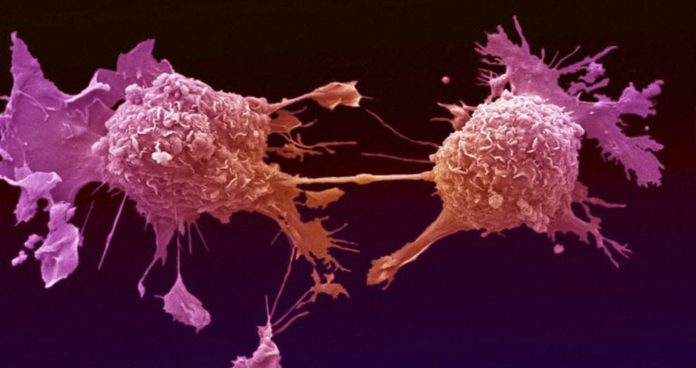
Scientists from the Washington University School of Medicine in St. Louis, MO, have developed a new vaccine for breast cancer that has been found to be safe for patients with metastatic breast cancer to use, a new study reveals.
The findings, published in the journal Clinical Cancer Research, also suggest that the vaccine primed patients’ white blood cells to attack tumor cells, slowing down the progression of the cancer.
The new vaccine works by triggering the body’s immune system to home in on a protein called mammaglobin-A, found almost exclusively in breast tissue. Its role in healthy tissue is currently unknown, but previous research has shown that breast tumor cells express the protein at abnormally high levels.
“Being able to target mammaglobin is exciting because it is expressed broadly in up to 80 percent of breast cancers, but not at meaningful levels in other tissues,” says senior author Dr. William Gillanders. “In theory, this means we could treat a large number of breast cancer patients with potentially fewer side effects.”
Many pre-existing drug treatments for breast cancer target another protein called human growth factor receptor 2 (HER2). These treatments, including trastuzumab and pertuzumab, can have significant side effects including chronic diarrhea and heart problems.
Vaccine also found to slow cancer progression
Upon administration, the vaccine primes white blood cells — an integral part of the body’s immune system — to target cells that have the mammaglobin-A protein. As a result, the vaccine would be ineffective in the small proportion of breast cancer patients whose tumors do not produce mammaglobin-A.
The study took the form of a small-scale phase 1 trial, during which the vaccine was screened for safety. A total of 14 patients with metastatic breast cancer — cancer that has spread to other parts of the body — whose tumors expressed mammaglobin-A received the vaccination.
Only a small number of side effects were observed; the researchers reported eight cases that were identified as mild or moderate. These included the development of mild flu-like symptoms, rash and tenderness at the site of the vaccination. No severe or life-threatening side effects occurred.
In addition to testing the vaccine’s safety, evidence from the trial also suggested that the vaccine managed to slow the progression of the breast cancer.
Around half of the 14 patients who received the vaccine showed no progression of their cancer a year on from having the vaccine. This finding compared favorably with one from a similar control group of 12 patients who did not receive the vaccine, within whom only around one-fifth showed no cancer progression after one year.
Results deemed ‘very encouraging’
Although the sample sizes in both groups are small, the difference is considered significant, especially considering that patients with metastatic cancer typically have less potent immune systems due to their treatment and the progression of their disease.
Dr. Gillanders describes the findings as very encouraging. “Despite the weakened immune systems in these patients, we did observe a biologic response to the vaccine while analyzing immune cells in their blood samples,” he says. “We also saw preliminary evidence of improved outcome, with modestly longer progression-free survival.”
Based on results of this study, Dr. Gillanders and his colleagues are planning a larger clinical trial to test the vaccine in newly diagnosed breast cancer patients, who, in theory, should have more robust immune systems than patients who already have undergone extensive cancer therapy.
“If we give the vaccine to patients at the beginning of treatment, the immune systems should not be compromised like in patients with metastatic disease,” says Dr. Gillanders said. “We also will be able to do more informative immune monitoring than we did in this preliminary trial. Now that we have good evidence that the vaccine is safe, we think testing it in newly diagnosed patients will give us a better idea of the effectiveness of the therapy.”
